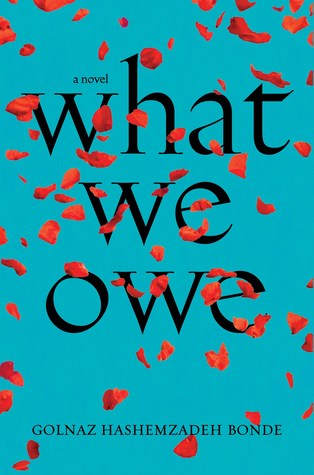What We Owe
Translator: Elizabeth Clark Wessel
Author: Golnaz Hashemzadeh Bonde
Publisher: Houghton Mifflin Harcourt
Year of Publication: 2018
The winner of the Dayton Literary Peace Prize “about mothers and daughters, nation and exile, and the way forward with hope and pain . . . a masterpiece” (Tayari Jones, The Times).
Told she has six months to live, an Iranian refugee living in Sweden rages against her inevitable decline—and wrestles with the choices of her past—in Hashemzadeh Bonde’s spare and devastating novel, her first to be published in the U.S.
At 50, Nahid is unceremoniously diagnosed with terminal cancer. She knows death: A former Marxist revolutionary who fled Iran for Sweden, she has seen it. Now that it is upon her, she ought to be prepared. “I’ve always carried my death with me,” she announces. “Our time was always borrowed. We weren’t supposed to be alive. We should have died in the revolution.” But the reality of the diagnosis terrifies her. “What do you do when they tell you you’re dying?” she wonders, caustically. What follows is less a plot than a reckoning: As her health declines, she recalls her childhood in Iran, the early excitement of the revolution followed by the brutality of the violence. She reflects back on her marriage and her early years in Sweden, poisoned by the pain she and her husband shared. And in the present, she considers her daughter, Aram, raised in so-called freedom, now an adult with a doting Swedish boyfriend. She loves Aram more than anyone, but her anger makes her cruel. “You have no mother,” she tells Aram, shortly after diagnosis. “You have nobody. You’re an orphan.” Nahid is capable of betrayal; she learned that during the revolution. Now that she is dying, she debates the value of her choices: “I wonder now what’s worth more,” she says. “Freedom and democracy. Or people who love you. People who will take care of your children when you die.” Translated—gorgeously and simply—by Wessel, Nahid’s sentences are short and thrillingly brutal, and the result is exhilarating. Hashemzadeh Bonde, unafraid of ugliness and seemingly unconcerned with likability, has produced a startling meditation on death, national identity, and motherhood.
Always arresting, never sentimental; gut-wrenching, though not without hope.
–Kirkus Reviews

